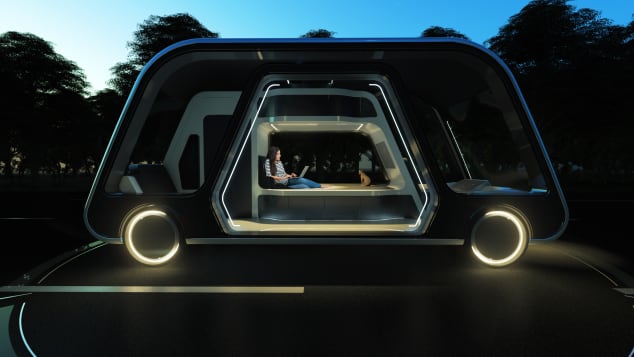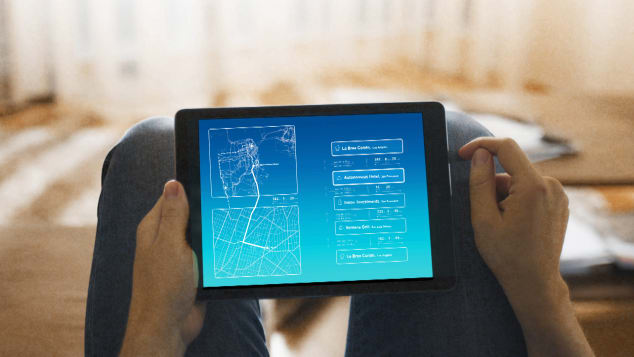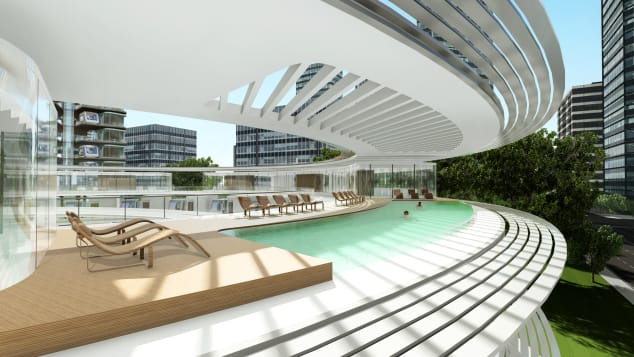Question: What do you get if you cross a hotel room with a self-driving vehicle?Answer: The Autonomous Travel Suite (ATS).
A hotel room on wheels, the ATS is the brainchild of Toronto-based Steve Lee of Aprilli Design Studio and could revolutionize the way we travel.
Lee says that his hybrid concept, which won this year’s Radical Innovation Award — a design competition for the hospitality industry — combines his experience in hotel design and architecture with his passion for futuristic technology.

While car designers have focused on developing advanced versions of conventional vehicles, “as an architect, I see self-driving vehicles as more being more like a mobile room,” says Lee.
Designed to carry travelers on journeys of between six and 10 hours, the ATS is equipped with many of the elements found in a traditional hotel room: a sleeping space (with a memory foam mattress), a workspace, a tiny kitchen, a toilet, a sitting shower and an “entertainment zone” for watching movies and gaming.
It is encased by panoramic smart glass windows that dim at the touch of a button.

Travellers will “select the start and end points of their journeys and can add stopping off points such as gyms and restaurants,” says Lee. “The system will work out the best route.”
In Lee’s vision, the vehicles will be operated by a chain of “Autonomous Hotels” that provide critical on-the-road services including vehicle maintenance, water provision and waste removal.
Travellers can choose to dock their ATS into a static “parent suite” to form an integrated unit offering overnight stays and use of shared amenities such as swimming pools, gyms, restaurants and meeting rooms.
Lee is currently talking to automakers about how best to power the ATS. If the suites are electric, they will be supported by service vehicles that replace their batteries when the juice is running low.
Hydrogen-fueled vehicles are another option. Although the technology is less developed, it offers the potential for a longer driving range between pit stops.

So when can travellers hope to try out the mobile hotel experience?
Lee says that his creation is likely to first hit the roads in East and West coast cities in the US, where the infrastructure will be completed soonest, and points to a cluster of cities including New York, Pittsburgh, Boston and Washington DC which “all fall into the six-to-ten-hour driving range,” as possible candidates for early adoption.
He believes that as a customized, comfortable and time-efficient form of transport, the ATS will be well-positioned to replace domestic air travel — eliminating the necessity to wait in line at check-in, make multiple transport transfers and lug heavy suitcases around.
